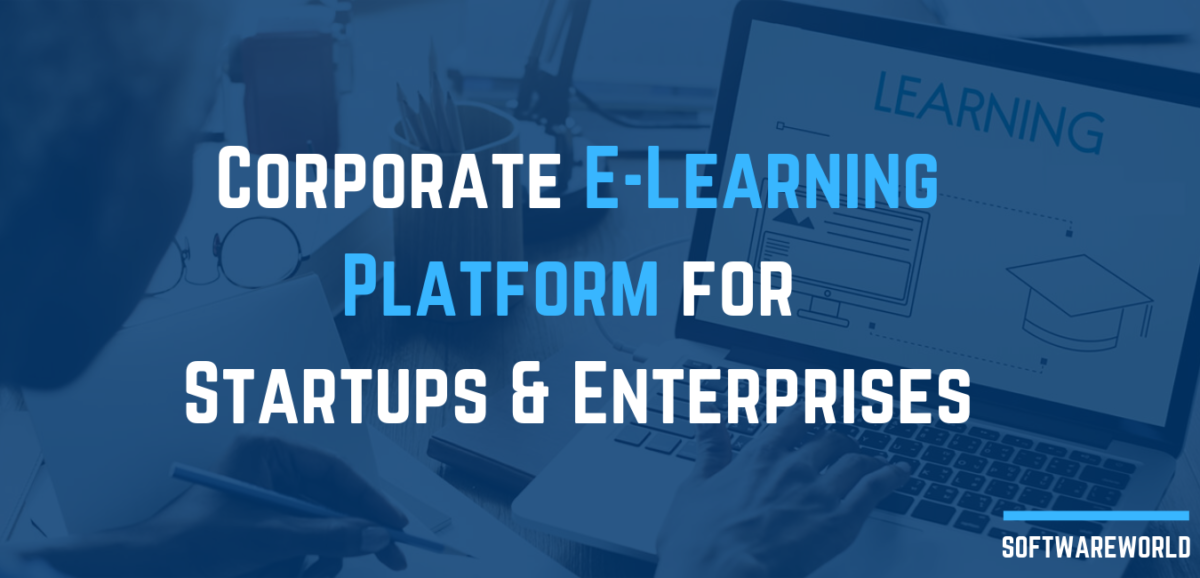Whether it is a retail, automobile, healthcare, aviation, or any industry, training the workforce through corporate eLearning platform is a viable option. Using the new-age eLearning platform, organizations (enterprises, startups, etc.) leverage benefits of mitigating costs and risks associated with traditional learning. Several businesses deploy learning management systems to serve as a robust platform to deliver engaging training content on your desktop, laptop, and even mobile devices including smartphones and tablets. You can choose the best learning management system (LMS) as per the personalized training needs and diverse audience profiles. Based on the specific industry requirement, the LMS provides training on different topics- be it compliance, sales enablement, human resources, soft skills, onboarding, and more.
The effective delivery of online training programs helps to boost overall levels of workforce participation, knowledge retention, and organizational performance. From employee development to training the extended workforce (partners, suppliers, resellers, customers, etc.), online learning platforms help L&D teams on this. Also, automated reporting and performance tracking features make enterprise LMS a perfect platform to deliver corporate training. Are you looking for the best eLearning platform which caters to the ever-evolving needs of the modern workforce and improves overall training impact? If yes, then the selection of the most appropriate corporate eLearning platform may depend on the diverse training requirements of a startup company or an enterprise, as discussed below:
» Startup companies
Startups utilize modern eLearning platform which supports features such as gamification and augmented reality to engage maximum employees, boost retention, and drive business growth. These include small enterprises which want to deliver an incredible learning experience for all. Startup organizations are gradually shifting towards using cloud-based LMS- flexible, accessible, and affordable, without involving any initial installation or deployment costs. There are various challenges faced by growing organizations and startups such as the generation of automatic reports, training diverse audience profiles, effective knowledge transfer, and more. A centralized online learning platform is implemented to address these challenges by providing updated information in the cloud space. Enterprise LMS is beneficial for startups in many ways. These include:
› The robust eLearning platform offers access to relevant content at any point in time. For instance, if a customer is facing any issue, then employees can quickly access a short video on essential tips and help customers by resolving this issue. Consequently, this drives optimal engagement, boosts retention, and improves ROIs.
› With less or no infrastructure needs, startups deploy cloud-based LMSs supporting features such as curriculum management and assessment engine. As a result, this fosters a continuous learning culture and the development of a smarter workforce.
» Enterprises
Today, enterprises adopt e-learning approach to improve workforce engagement, knowledge retention, reduce training costs, and increase ROIs. They deliver custom e-learning solutions through modern enterprise learning management systems. Based on the pertinent learning need, enterprises organize internal/external workforce training programs on sales, onboarding, soft skills, compliance, and other topics. In today’s digital era, enterprises the benefits of LMS features which include mobile learning, gamification, rapid authoring, assessment engine, augmented reality (AR), personalization, automated learning delivery, skill-gap analysis, social learning, virtual classroom, and more. Different ways of how modern LMS is beneficial for enterprises are discussed as follows:
› Modern LMS delivers enterprise eLearning to train employees on industry regulations. Online compliance training through a centralized system helps to continuously update every employee on changing rules, policies, and compliances.
› The robust training corporate eLearning platform also reduces onboarding time by assigning courses to a group of employees within a few clicks. New hires familiarize with company’s policies and culture, thereby improving their retention levels.
› Modern LMS creates performance metrics for every employee and assigns relevant courses to cater to individual needs. Employees receive automatic notifications on upcoming training sessions, which can help them bridge competency-gaps.
In today’s fast-paced world, e-learning is transforming the ways people learn, while at home, from office, or even on the go. There is a broad spectrum of benefits of adopting corporate eLearning approach. Let us discuss these benefits in detail:
› Better engagement
The delivery of e-learning courses as bite-sized content in the form of interactive games, short infographics, and short-duration videos ensure optimal engagement and retention. Modern learners have fewer attention spans, so they prefer watching a short video rather than going through boring textual content.
› Personalized approach
Today, the focus of organizations is to align learning with diverse business goals. E-learning caters to the customized needs of all-whether internal employees or extended workforce comprising dealers, suppliers, channel partners, or even customers. With the emergence of mobile devices, it has become more convenient for the employees to undergo training at the point of need.
› Affordable
Unlike the traditional classroom approach, eLearning helps to mitigate training costs associated with travel and infrastructure. As a result, this allows enterprises to improve employee engagement, workplace retention, and overall ROIs.
› Measurable
E-learning measures the overall training impact by analyzing how much time learners spend on each course. Based on the progress report of individuals, the robust LMS creates performance metrics and then automatically assigns relevant training modules to meet tailored needs. For instance, the LMS analyzes sales performance metrics using Key Performance Indicators (KPI) data and then accordingly assign mandatory training courses on sales enablement, soft skills, time management, and others.
› Real-time feedback
Online learning platforms enable trainers as well as managers to track learning activities and give instant feedback. Managers can include online quizzes and assessments to analyze individual scores and accordingly provide input on the areas of improvement. Learners can access the LMS dashboard to check their progress status, completed training programs, and upcoming training calendar.
› Social learning
Modern LMSs also enhance social collaboration among learners and trainers through online polls, blogs, surveys, and discussion forums. These also aid the learners to seek real-time expert advice, increase their peer-to-peer collaboration, and experience effective knowledge transfer.
› Seamless Integration and Industry compliant
The new-age enterprise LMSs can successfully integrate with existing systems including Human Resource Information System (HRIS), Sales Performance Systems, Enterprise Resource Planning (ERP), Integration and Payment Gateways, and others. The seamless integration helps to fetch employee data, analyze individual KPI scores, and drive organizational performance. Also, modern e-learning systems are compliant with the latest industry standards, including SCORM, Section 508, GDPR, AICC, Tin Can, and more. These industry-specific compliances support features, including adaptability, reusability, and flexibility to create content personalized to the learning needs of intended audiences.
To ensure your employees are skilled, compliant, and adequately trained, it is crucial to invest in a robust corporate eLearning platform. With technological development, most of the startups and big organizations are shifting towards deploying modern LMSs that perfectly align with learning and performance goals. Also, the support for various authoring tools such as Articulate, Composica, Captivate, and others enables the LMS to create interactive e-learning courses. From the retail, finance, and automobile sector to aviation, healthcare, and others, the modern LMS caters to the personalized learning needs of all. Consequently, corporate eLearning platform automates the delivery of continuous and customized training experience for organizations in different industry verticals. Amongst the most popular eLearning platforms available in the market, you can select the one that best suits your individual and organizational needs. So, even if the modern eLearning platform serves a gamut of benefits, the path to driving optimal training outcomes varies for startups and enterprises.
YOU MAY ALSO LIKE
› Top 10 Online Training Software
› Top 10+ Survey Software
› Top 10 Market Research Software
› Top 10 Idea Management Software


